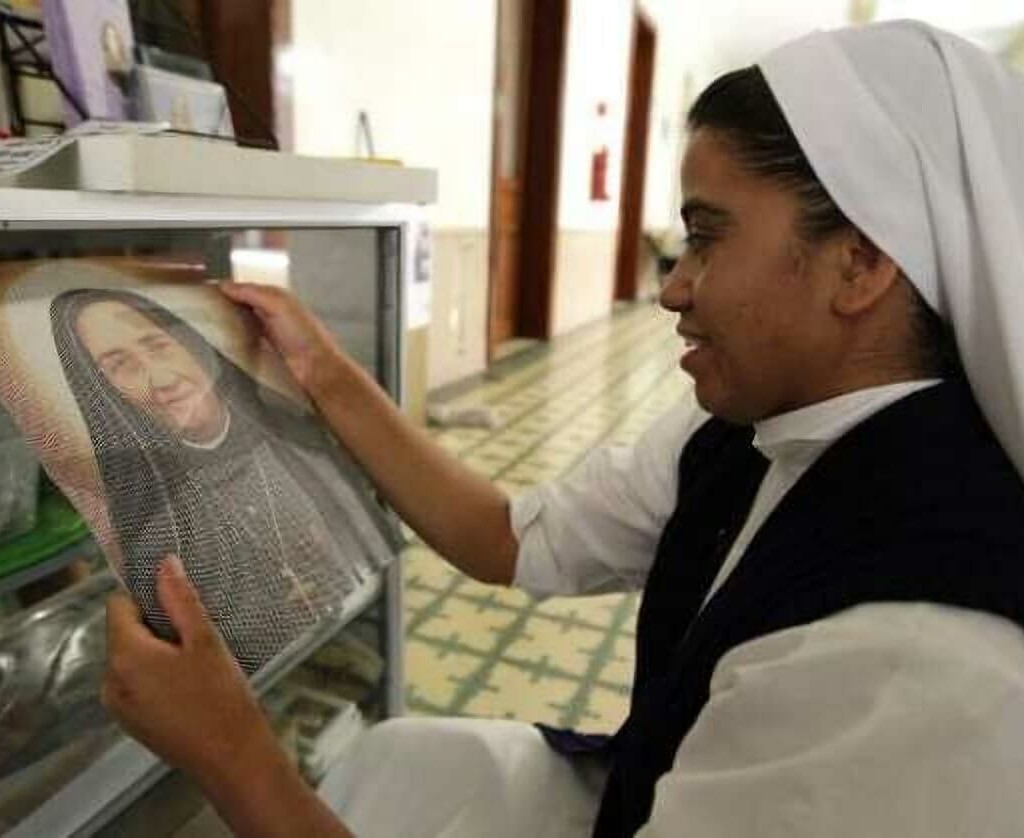The life of María Guadalupe García Zavala, known as Mother Lupita, is a testament to devotion and service. From her beginnings in Zapopán, Jalisco, to the founding of the Congregation of the Servants of Saint Margarita María and the Poor, her commitment to the most vulnerable left an indelible mark. Her work in hospitals and the protection of priests during times of persecution reflect her deep sense of solidarity and humility.
Mother Lupita: Legacy of Charity and Healing in Jalisco
The story of María Guadalupe García Zavala, better known as Mother Lupita, reflects a religious vocation that blossomed at an early age.
She was born in Zapopán, Jalisco, on April 27, 1878, right in front of the Basilica of Our Lady of Zapopán, where her father managed a devotional goods business. From her early years, she displayed a compassionate heart and a deep yearning to serve the poor and the sick, traits that would later define her legacy.
Initially, Mother Lupita seemed to be heading towards marriage: she was 23 years old and engaged when she decided to make a radical turn in her life. Although the wedding was imminent, she followed a powerful inner conviction and chose to consecrate herself to God.
This decision, which surprised many in her community, marked the beginning of a path of unreserved service. Shortly thereafter, under the guidance of Father Cipriano Iñíguez, she co-founded the Congregation of the Servants of Saint Margarita María and the Poor, in which she assumed the position of General Superior, a role she held for the rest of her life.
Ongoing Commitment to the Most Vulnerable and Religious Persecutions
Her aid work focused on local hospitals that were experiencing financial difficulties. To address these problems, Mother Lupita did not hesitate to go out begging along with some nuns, demonstrating unwavering humility and perseverance.
Consequently, her efforts ensured the continuity of medical care for those lacking resources. At the same time, she established an environment of solidarity that included loving care for soldiers of the persecuting government and clandestine priests, a circumstance that transcended political or ideological differences.
Hostility towards the Catholic Church in Mexico intensified during the transition after the fall of Porfirio Díaz, continuing until the 1930s. However, Mother Lupita found a way to protect several people during these upheavals.
On one hand, she hid priests, including the then Archbishop of Guadalajara, but on the other, she provided medical care and food to members of the enemy side. This balanced stance earned her gratitude and recognition, while consolidating her reputation for holiness among both believers and non-believers.
Canonical Recognition of Mother Lupita
In 2004, Pope John Paul II beatified Mother Lupita, validating her first miracle: the unexplained healing of a man with chronic pancreatitis.
Years later, a second confirmed miracle—this time the healing of a woman with cerebral hemorrhage—laid the foundation for her canonization. Pope Francis elevated her to the altars in 2013, although the news was somewhat overshadowed by the announcement of Pope Benedict XVI’s resignation. Nonetheless, Mother Lupita’s holiness strengthened the legacy of Mexican saints, enriching an already notable religious heritage.
Currently, the Congregation of the Servants of Saint Margarita María and the Poor has 22 houses, distributed in Mexico and other nations such as Peru, Iceland, Greece, and Italy. Through a network of hospitals and care centers, these nuns continue their founder’s mission: providing dignified care to those who suffer and keeping alive the tradition of solidarity initiated in the early 20th century.
The figure of Mother Lupita transcends her time. Her commitment to charity, her limitless dedication to the sick, and her bravery in the face of political persecution continue to inspire numerous generations of believers and people of good will.
Indeed, her constant devotion to the marginalized highlights the importance of compassion in a world that often prioritizes self-interest. Thanks to her example, the values of humility and love extend beyond Mexican borders, becoming a source of light for those who aspire to build a more just society.
Mike Rivero – Catholic News in Mexico





